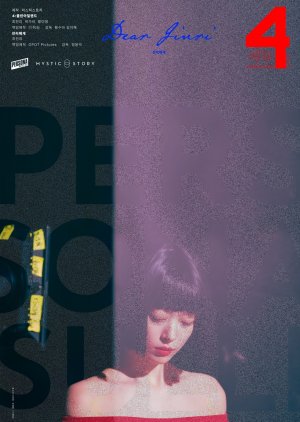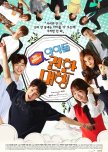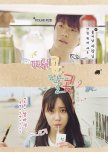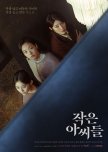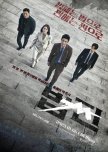
Window into the life of a Star who only wanted the chance to be herself
I can't say I knew Sulli or was even much of a fan, but her death deeply saddened me. She was everything the Korean entertainment industry needed for a positive, if not better, change. She became the change she wanted to see but sadly gave up on that change to the people who made her famous and who were also the ones who pulled her down to the lowest point that she felt the only escape was to leave it all to them. Given the opportunity, I truly believe she would have been the beginning of the change needed in the industry, making this documentary is proof of that. It is so hard to watch at times. For us fans, everything looks so glamorous watching from our TV screens. I can't fathom the hardship, discrimination, control, mental, physical, and even sexual abuse many of the stars we adore suffer to bring us the phantom joy we live in for a few hours or weeks.More than the short film, the interview was hard to watch, at least for me, hearing and in some instance feeling her pain, imagining the hardship, and ultimately, picturing the decline in mental health is truly heartbreaking. I wish she knew she had other options, but it is easy for me to say this now. I wish the people around her helped her realize there were other choices, including her management company. They must have witnessed her pain first hand. I genuinely believe the entertainment industry itself bears a lot of responsibility for her suicide and the many others like her. They treat celebrities like commodities from whom a few powerful agencies can squeeze as much income in as short a time as possible. They strip them of any semblance of a normal life, letting the fans go too far in their obsessions and sometimes giving into their demands of not allowing idols to be in relationships or even marry.
The crazy fans who obsessed over Sulli's life choices are also to blame for her death and the death of many gone too soon in this industry. I realize the many celebrity suicide deaths in the past decade or so have brought the issue of suicide and mental health to the forefront, as Korea has the highest rates among developed countries among civilians, and is attributed to academic and work pressure, the stigma around mental health, among others. I can't even begin to know the solution, but I would guess an open and honest dialogue like this one is a great start. Rest in peace, Sulli and the many others who left this earth too soon. I highly recommend giving this a try. Sulli earned at least that. I only gave the rewatch value an 8 because it was just too hard to watch at times.
Was this review helpful to you?

no last words
4: Clean Island is a 30 minute short movie.Dear Jinri is a 100 minute long documentary.
4: Clean Island is a symbolic story about the state of k-pop entertainment but also our society in general. It also appears to be a biographical story about the life of dear Sulli. It is very stylistic and artisic, with unusual scenes and sureal story that makes the viewer wonder if he is the consumer who kills off artists...
Dear Jinri is a documentary mostly based on the interview given for Netflix and some images from the life of Sulli/Jinri. Then there are 5 parts that wanted to split the documentary in chapters connected with Dorothy in the land of Oz. I didn't quite get the connection, but it must have something to do with imagination that Sulli had as an artist. Hearing and watching her interview was emotionally very exhausting. It felt like hearing a confession, and still realizing how much is being unsaid. One can only sympathise with the honesty and pray for the soul of dear Jinri. Unfortunately we didn't hear her last words but at least we are left with her innocent smile that encourages us to try to spread hope and support to our friends.
Was this review helpful to you?

A "Red Pill" into the Real Life of Jinri
This was difficult to get through. Her pain really shows.With that said, I am also glad they released it. The minimalistic approach to editing allowed the space for Sulli's thoughtful, albeit painful, responses to be seen. For an idol that was silenced and filtered her whole life, I feel like the editing of the documentary did a good job of just allowing her to exist, to talk, and to show emotion. This interview could've been edited to 20 minutes but instead they gave us everything. I think Sulli would've wanted to be seen and understood in this vulnerable state because it's honest and raw. Embrace her for she is human too.
Thank you for giving us the last little pieces of Sulli's life. She is still missed dearly. Rest well, angel.
Was this review helpful to you?

